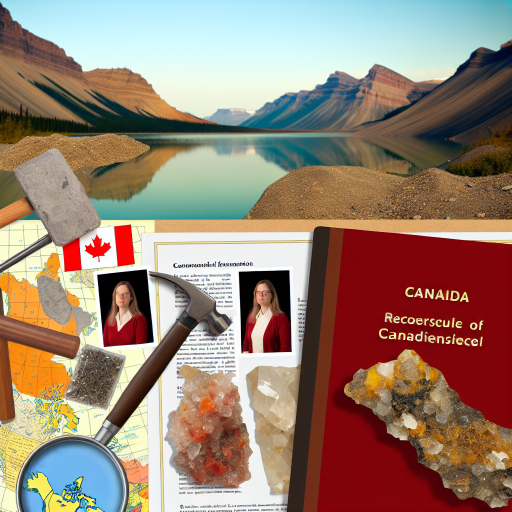Overview of the Role of a Physicist in Canada
Defining the Role of a Physicist
A physicist studies the fundamental principles of nature.
They investigate matter, energy, and the forces that govern them.
In Canada, physicists contribute to various scientific fields.
These include astrophysics, condensed matter physics, and medical physics.
Work Environments for Physicists
Many physicists work in academic institutions and research centers.
Others find opportunities in government laboratories.
Additionally, many physicists are employed in the private sector.
They may work with technology firms or healthcare companies.
Key Responsibilities of Physicists
Physicists conduct experiments to test theories.
They analyze data to derive conclusions about physical phenomena.
Moreover, physicists often publish their findings in scientific journals.
They also present their research at conferences and workshops.
Collaboration with Other Disciplines
Physicists frequently collaborate with professionals in other fields.
For example, they may work with engineers and chemists.
This interdisciplinary approach fosters innovation and problem-solving.
It enables the development of new technologies and scientific advancements.
Impact on Society
Physicists play a vital role in technological advancements.
Many modern conveniences stem from theoretical and applied physics.
For instance, advancements in medical imaging have transformed healthcare.
Furthermore, physicists contribute to addressing global challenges.
These challenges include climate change and sustainable energy solutions.
Educational Requirements for Aspiring Physicists: High School to Undergraduate
High School Preparation
High school students interested in physics should focus on science and mathematics courses.
Courses in physics, chemistry, and advanced mathematics are essential.
Take advantage of extracurricular activities like science clubs and fairs.
Participating in Olympiads can enhance problem-solving skills.
Unlock Your Career Potential
Visualize a clear path to success with our tailored Career Consulting service. Personalized insights in just 1-3 days.
Get StartedConsider summer programs related to physics or engineering.
These experiences can provide valuable insights into the field.
Undergraduate Degree Options
Begin your journey by enrolling in a university with a strong physics program.
Most universities offer a Bachelor of Science in Physics.
Some institutions provide specialized tracks in astrophysics, condensed matter, or quantum mechanics.
Additionally, engaging in research opportunities benefits undergraduate students.
Facilities may allow you to work alongside faculty on projects.
This experience is crucial for gaining practical knowledge and skills.
Course Requirements
Undergraduate physics programs typically require core courses in classical mechanics and electromagnetism.
Additional courses in thermodynamics and quantum mechanics are also important.
Students should also take mathematics courses, such as calculus and linear algebra.
These courses form the foundation for advanced study in physics.
Building Skills Beyond the Classroom
Developing computational skills is crucial for modern physics.
Learning programming languages can enhance data analysis and simulation abilities.
Working on group projects helps in teamwork and communication skills.
These interpersonal skills are valuable in research and professional settings.
Graduate Studies Preparation
To become a physicist, consider pursuing graduate studies after your undergraduate degree.
Attend graduate school for a Master’s or Ph.D. in physics to specialize further.
Many research positions require advanced degrees in the field.
Engaging in research during undergraduate studies can strengthen your graduate applications.
Your undergraduate institution may also have networks for graduate programs available.
This step is essential for those looking to enter academia or research-focused careers.
Choosing the Right Undergraduate Program: Physics vs. Engineering Physics
Understanding Physics
Physics is the study of matter and energy interactions.
It focuses on fundamental principles governing the universe.
This discipline encourages critical thinking and problem-solving skills.
Students explore areas like mechanics, electromagnetism, and thermodynamics.
Moreover, they engage in theoretical and experimental research.
This field opens doors to diverse career paths in research and education.
Exploring Engineering Physics
Engineering physics combines physics with engineering principles.
This program emphasizes practical applications of scientific concepts.
Students gain skills in designing and optimizing technology systems.
They study advanced topics like nanotechnology and materials science.
Additionally, students work on hands-on projects and internships.
This degree prepares graduates for careers in technology and innovation.
Key Differences Between Physics and Engineering Physics
Physics programs focus mainly on theoretical foundations.
Engineering physics programs integrate engineering concepts and skills.
In physics, students can pursue a research-oriented approach.
Conversely, engineering physics prepares students for applied roles.
The choice depends on the student’s interests and career goals.
Factors to Consider When Choosing
Consider your long-term career aspirations when deciding.
Reflect on whether you prefer research or practical applications.
Evaluate the curriculum of different programs for their offerings.
Also, consult academic advisors and industry professionals.
Your choice will influence your educational experience and career trajectory.
See Related Content: Top Skills Needed To Succeed As A Physicist
The Importance of Research Experience During Undergraduate Studies
Understanding the Value of Research
Research experience is crucial for aspiring physicists.
It enhances critical thinking and analytical skills.
Furthermore, it deepens understanding of theoretical concepts.
Students also gain hands-on experience with complex equipment.
This practical knowledge is often not covered in lectures.
Building Connections through Research
Participating in research allows students to network with professionals.
It opens doors to mentorship opportunities.
These connections can lead to future job prospects.
Networking with faculty may result in research assistant positions.
Enhancing Graduate School Applications
Strong research experience boosts graduate school applications.
Admissions committees value candidates with practical experience.
Publication of research findings adds to academic credentials.
An impressive CV sets candidates apart from others.
Types of Research Opportunities
Students can engage in various research activities.
- Summer research internships
- Project-based courses
- Independent study projects
- Collaboration with faculty on ongoing projects
These experiences can be found in both academic and industry settings.
Pursuing Research Experience
Research experience shapes a well-rounded physicist.
Students should actively seek opportunities throughout their studies.
This commitment will pay off in their academic and professional lives.
Gain More Insights: Exploring Job Roles and Responsibilities of Ecologists
Pursuing Graduate Studies: Master’s and PhD in Physics
Understanding Graduate Studies in Physics
Pursuing graduate studies in physics is a crucial step for aspiring physicists.
These programs offer advanced knowledge and research opportunities.
Students can choose to pursue either a Master’s or PhD in Physics.
Both options pave the way for diverse career paths in academia and industry.
Master’s Degree in Physics
A Master’s degree typically requires two years of study after completing a bachelor’s degree.
The program focuses on advanced coursework and research in specialized areas.
Students often engage in laboratory work and theoretical projects.
Additionally, many programs require a thesis or capstone project.
The Master’s degree prepares students for professional roles or doctoral studies.
Comprehensive Curriculum
The curriculum covers essential physics topics and scientific methodologies.
Courses may include quantum mechanics, thermodynamics, and electromagnetism.
Research methodologies are also integral to the learning experience.
Admission Requirements
Admission to Master’s programs typically requires a strong academic background in physics.
Prospective students must submit academic transcripts, letters of recommendation, and a statement of purpose.
Some schools may also require standardized test scores, such as the GRE.
PhD in Physics
A PhD program generally takes four to six years to complete.
This degree emphasizes independent research and scholarly contributions to the field.
PhD candidates must develop a substantial dissertation based on original research.
Additionally, they usually need to pass comprehensive exams.
Research Opportunities
PhD candidates often work under the guidance of experienced faculty members.
They may collaborate on groundbreaking projects and attend conferences.
This experience enhances their skills and expands professional networks.
Dissertation Process
The dissertation process is a significant component of a PhD program.
Students must identify a unique research question and propose a study plan.
Regular meetings with advisors help to refine their research approach.
Successful completion of the dissertation leads to earning the PhD degree.
Career Prospects After Graduate Studies
Graduates with Master’s or PhD degrees in physics have diverse career options.
They can pursue roles in academia, research institutions, or private industries.
Common employers include universities, government agencies, and technology companies.
Furthermore, some graduates continue their education with postdoctoral research positions.
Continuing Education and Networking
Professional development is vital in the field of physics.
Many graduates participate in workshops, seminars, and conferences to stay updated.
Networking with professionals can lead to collaborative opportunities and job referrals.
Learn More: How to Network and Build a Career in Geology
Specialization Areas within Physics
Astrophysics
Astrophysics involves the study of celestial bodies and the universe’s workings.
Students focus on galactic phenomena and cosmic events.
This specialization combines physics principles with astronomical observations.
Research includes black holes, supernovae, and cosmic radiation.
Astrophysics is vital for understanding our universe’s origins and future.
Condensed Matter Physics
Condensed matter physics studies the properties of solid and liquid matter.
This area examines phenomena like superconductivity and magnetism.
Students learn about atomic structure and material behavior.
Research often leads to advancements in technology and materials science.
Furthermore, understanding condensed matter contributes to electronic device development.
Particle Physics
Particle physics explores the fundamental particles of the universe.
Students investigate subatomic particles and their interactions.
This field includes high-energy experiments conducted at particle accelerators.
Researchers aim to uncover the forces that govern those interactions.
Discoveries in particle physics can reshape our understanding of matter.
Theoretical Physics
Theoretical physics focuses on developing models to explain physical phenomena.
Students engage in mathematical formulations and simulations.
This area explores concepts such as quantum mechanics and relativity.
Researchers often collaborate with experimental physicists to validate theories.
Theoretical advancements can lead to groundbreaking innovations.
Medical Physics
Medical physics applies physics principles to healthcare and medicine.
Students study radiation therapy and imaging technologies.
This specialization aims to improve diagnostic and treatment methods.
Medical physicists ensure safety and efficiency in medical procedures.
As a result, this field significantly impacts patient care and outcomes.
Gain More Insights: Tools and Technology Every Ecologist Should Know

Postdoctoral Opportunities and Their Role in Career Advancement
Overview of Postdoctoral Positions
Postdoctoral positions offer crucial opportunities for recent PhD graduates.
They provide a platform for advanced research in specialized areas.
These roles often occur in academic institutions, research facilities, or industry settings.
Moreover, postdocs can lead to substantial networking opportunities.
Benefits of Postdoctoral Programs
Engaging in a postdoctoral program enhances your research skills dramatically.
Researchers gain access to advanced techniques and methodologies.
You can also publish impactful research papers during this phase.
Such publications significantly elevate your academic standing.
Skill Development through Research
Postdoctoral positions typically involve independent project management.
This autonomy fosters decision-making and leadership skills.
Additionally, you will likely collaborate with various experts.
These collaborations sharpen your teamwork and communication abilities.
Transitioning to Permanent Positions
Postdoctoral experience often increases your employability in academia and industry.
Hiring committees look favorably on candidates with postdoctoral experience.
This experience signals dedication and advanced proficiency in your field.
Consequently, you become a stronger candidate for faculty and research roles.
Navigating Postdoctoral Opportunities
Identifying suitable postdoctoral opportunities requires careful planning.
Explore university websites and research institutes for openings.
Networking at conferences is another effective strategy for finding positions.
Connecting with mentors can provide valuable insights and recommendations.
The Role of Funding in Postdoctoral Positions
Securing funding is a critical aspect of postdoctoral research.
Many positions are contingent upon grants and scholarships.
Proactive grant writing enhances your research independence and visibility.
Successful funding applications can lead to additional research opportunities.
Career Paths for Physicists: Academia, Industry, and Government Roles
Paths in Academia
Many physicists pursue careers in academia, becoming educators and researchers.
They often start with a PhD in physics, specializing in a specific area.
Academics often publish their research in reputable journals.
Colleges and universities hire physicists to teach undergraduate and graduate courses.
Some may lead research groups and supervise students’ theses.
Grants from government and private sectors often support their research projects.
Networking at conferences can enhance career opportunities in academia.
Opportunities in Industry
Physicists also find rewarding careers in various industries.
They apply their knowledge to develop new technologies and products.
Sectors such as aerospace, electronics, and telecommunications actively hire physicists.
Some physicists work in consulting firms, providing expert advice.
Industry jobs typically require strong analytical and problem-solving skills.
Collaboration with engineers and other professionals is common in these roles.
Advancing in industry often leads to managerial or leadership positions.
Government Roles for Physicists
Many government organizations seek the expertise of physicists.
They work in research institutes, national laboratories, and regulatory agencies.
Common roles involve policy development, research, and technology assessment.
Physicists might contribute to projects related to national security or environmental protections.
The work often influences significant societal issues, such as energy and healthcare.
Physicists in government positions may also collaborate with academic researchers.
These roles can offer stability and benefits associated with public service.
Networking and Professional Organizations for Physicists in Canada
Importance of Networking
Networking provides valuable opportunities for physicists to connect with peers.
It opens doors to collaborations and new research possibilities.
Additionally, networking can lead to employment opportunities in various sectors.
Major Professional Organizations
Several organizations support physicists in Canada.
The Canadian Association of Physicists (CAP) serves as a central entity.
It promotes physics research and education across the country.
Moreover, CAP organizes meetings and conferences for professionals.
Beyond CAP, the Canadian Institute for Advanced Research (CIFAR) fosters collaboration.
CIFAR connects scientists across disciplines and promotes innovative research.
Building Connections via Conferences
Attending conferences is an excellent way to network.
The CAP annual conference brings together physicists from various fields.
Participants can share their work and learn from others.
Conferences also feature workshops to develop professional skills.
Such events often result in lasting professional relationships.
Leveraging Online Platforms
Online platforms enhance networking for physicists in Canada.
LinkedIn offers a professional space to connect and engage with others.
It allows physicists to showcase their skills and experiences.
Moreover, forums like ResearchGate facilitate collaboration on research projects.
Participating in online discussions can lead to valuable insights and connections.
Mentorship Opportunities
Finding a mentor can significantly impact a physicist’s career.
Organizations often facilitate mentorship programs.
A mentor provides guidance and shares experiences in the field.
Furthermore, mentors can introduce mentees to key industry contacts.
Such relationships foster professional growth and development.
Additional Resources
Physics Degree | Undergraduate Programs | University of Waterloo
Careers in space – Scientists | Canadian Space Agency




